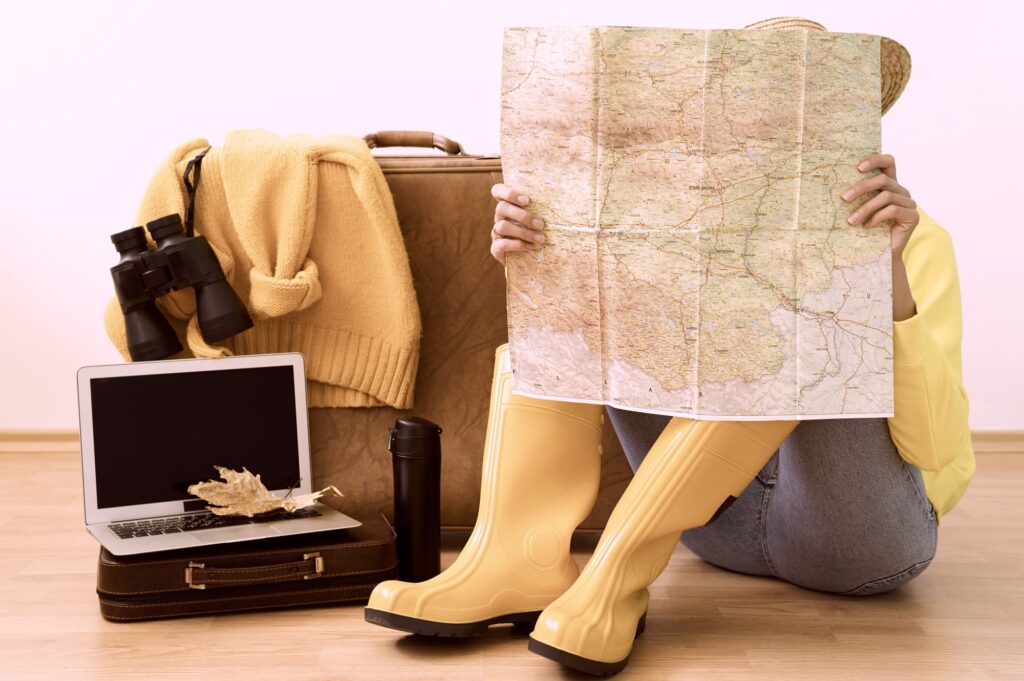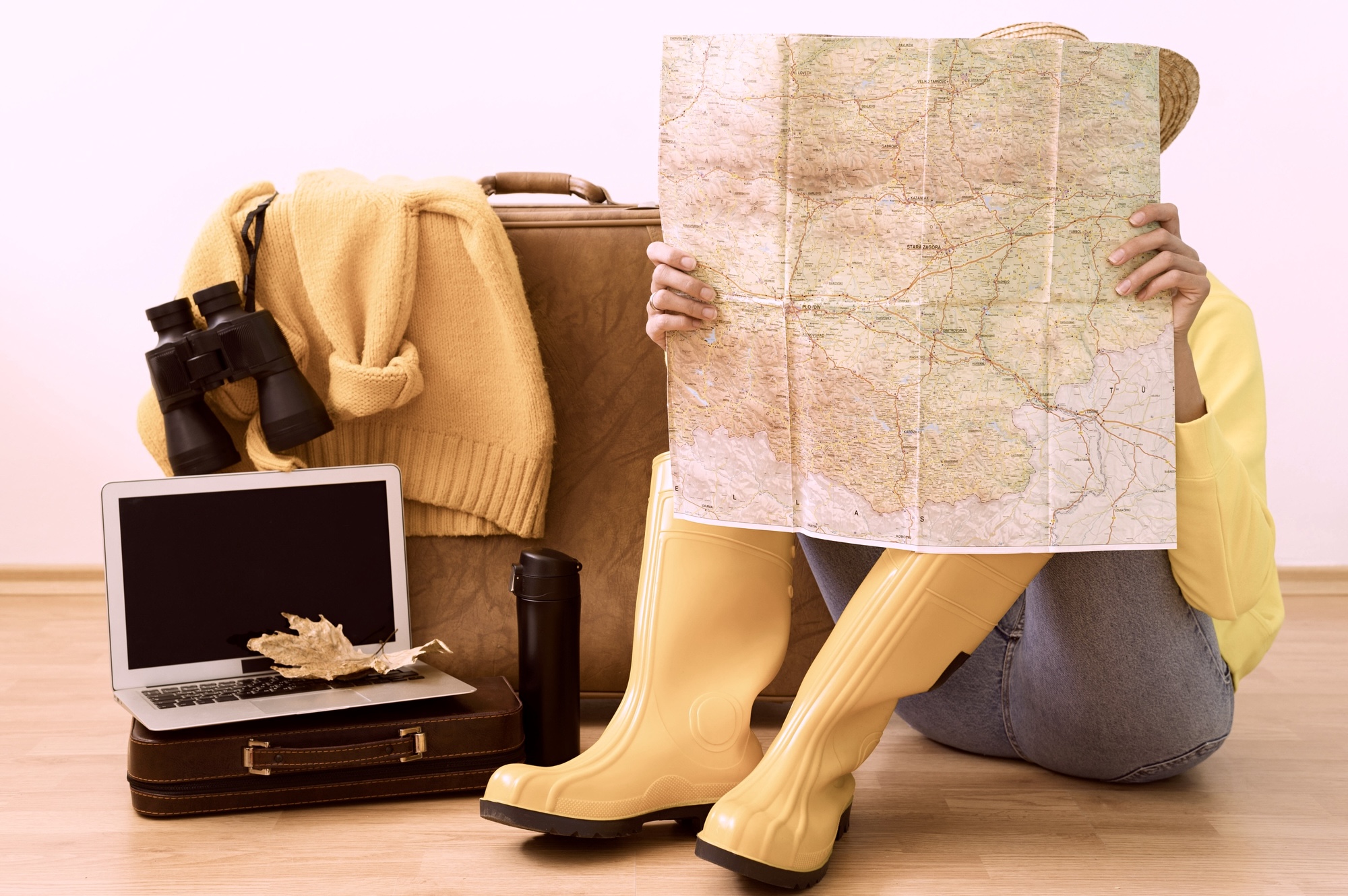
Backpacking is an exciting way to explore the world on a budget while immersing yourself in new cultures and environments. However, proper planning is crucial to ensure a smooth and enjoyable trip. This guide will walk you through the essential steps how to plan your backpacking adventure.
After countless mistakes, we’ve learned how to plan our trips more effectively. For people without much experience, this guide can serve as a great starting point for your plans. Of course, with years of experience, we’ve come to realize that spontaneity can be just as important as planning. You don’t need to map out every detail of your trip because one of the best parts of backpacking is having no plan at all.
In our experience, detailed plans often change completely upon arrival. This happens almost every time, whether due to local recommendations for hidden gems that aren’t found online, advice from fellow backpackers in hostels, tips from local guides, weather conditions, or other unexpected factors.
If you have any questions or need further recommendations, don’t hesitate to contact us via email or Instagram. We’ll be happy to help!
1. Decide on Your Backpacking Destination
Sometimes the destination ties into the budget, as some places are naturally more expensive than others. For example, you can’t compare the costs of traveling in Southeast Asia to those in America. However, no matter where you’re headed, we’re here to help you find good deals.
Choosing your destination is, of course, the first step. Pick a region that fits your interests, budget, and experience level. Southeast Asia, South America, and parts of Europe are great for beginners because they’re backpacker-friendly and affordable.
Make sure to research the best time to visit to avoid bad weather or crowded tourist seasons. Also, check visa requirements, vaccinations, and any other travel restrictions for your chosen destination. That’s your starting point!
2. Set a Backpacking Budget
Money is, unfortunately, an important part of any trip, but there are ways to save on accommodation, such as job exchanges or volunteering. However, if you don’t have much time, I wouldn’t recommend these options.
It’s important to set a budget for flights, accommodation, food, transportation, and other expenses like entrance fees for national parks or tours. Tours can play a significant role in your trip, but if you want to save money, try to avoid guided tours offered by local travel agencies or hotels. Keep in mind that everyone needs to make a profit, so in most cases, you’ll be overcharged. Instead, try doing it yourself. Google Maps and the internet are great tools to help plan your own itinerary.
By doing so, you’ll also have more freedom and flexibility compared to being packed on a bus with 50 other people and following a tight schedule. Finally, always have extra money set aside for emergencies or unexpected expenses.
3. backpacking: Book Flights
For me, booking flights in advance is the most important step. Most of the time, prices will rise and rarely drop. Airlines use a pricing schedule for their flights, assigning seats to specific “containers” based on price. Once a “container” fills up, the next one at a higher price opens for purchase.
Airlines use complex algorithms to determine their prices, evaluating various factors, such as the type of airline (e.g., low-cost carrier or national airline), the itinerary, and the chosen class. All of these factors influence ticket prices. However, there is one factor that stands above the rest: demand.
This is why I strongly recommend booking flights in advance. Additionally, if you pay with a credit card, it allows you to spread the cost over several months instead of dipping into your savings or current account.
4. Accommodation
Accommodations are an essential part of our journeys, and there is a wide range to choose from hostels, guesthouses, hotels, campgrounds, vans, or tents depending on your preferences. If you’re traveling during peak season, it’s a good idea to book in advance, though honestly, I don’t always do so.
Nowadays, with plenty of apps available, (check Our Favourite Travel resources ), I’ve never had trouble finding a good, affordable spot. If you’re staying in cities, try to avoid accommodations in the city center, as prices are often outrageously high. This applies almost everywhere. For this reason, I avoid staying in tourist-heavy areas. Even if you’re interested in visiting the city, my rule is to “check out what’s just around the corner.” It’s a strategy that has served me well wherever I go.
5. Research Activities and Experiences
When we talk about activities and experiences, they are what make our trips unforgettable and the very reason we travel. From cultural exchanges to local activities, history, traditions, and food markets, these are the highlights of any journey.
Always make a list of key sights and activities you don’t want to miss. Look for cultural events, food tours, or unique hiking trails in the area (I’ll share my favourite hiking app below). Remember, walking is free and one of the best ways to travel, it allows us to fully enjoy and immerse ourselves in what we’re experiencing.
Don’t forget to talk to locals and ask for advice on activities. They often have the best recommendations!
Suggestion: https://www.alltrails.com
5. Travel Insurance
Travel insurance is essential when we travel, especially in remote countries where the cost of medical treatment can be life-changing. Choose a travel insurance plan that covers medical emergencies, lost luggage, and trip cancellations. Some providers even offer plans specifically designed for long-term or adventure travelers.
6. Plan Communication and Connectivity
SIM cards are essential for our trips. Staying connected is important for checking maps and other necessities because, let’s face it, nowadays, being without an internet connection can be a real challenge. That said, sometimes it’s good to disconnect, enjoy the moment, and reflect.
There are many apps available today for eSIMs (I’ll share my favorite below). Offline maps are also a great option. Download apps like Google Maps or Maps.me to navigate without Wi-Fi.
Suggestion: https://saily.com
7. Learn the Basics of Local Culture
Learning the basics of the local culture is important to show respect for the country, its people, and their religion. I often see disrespectful behavior from travelers, and I really dislike it. Whenever we travel and visit other cultures, we are guests, and as guests, we must behave well and show respect.
It’s a good idea to learn a few key phrases in the local language to help with communication. Respect cultural norms, dress codes, and traditions. Additionally, familiarize yourself with the local currency and tipping practices. Sometimes few pennies for us, can be a day shop for others.
8. Embrace the Adventure
Once everything is in place, relax and enjoy your journey! Be open to new experiences, meet fellow travelers, and immerse yourself in the adventure of a lifetime.
By following this guide, you’ll be well-prepared to embark on your backpacker trip with confidence. Happy travels!
Disclaimer: We are not affiliated with any of these businesses. This information is gathered from personal experiences and our feedback and we are happy to share as a helpful guide. We do not vouch for or recommend any service or establishment.
Check it out also : How to Save






